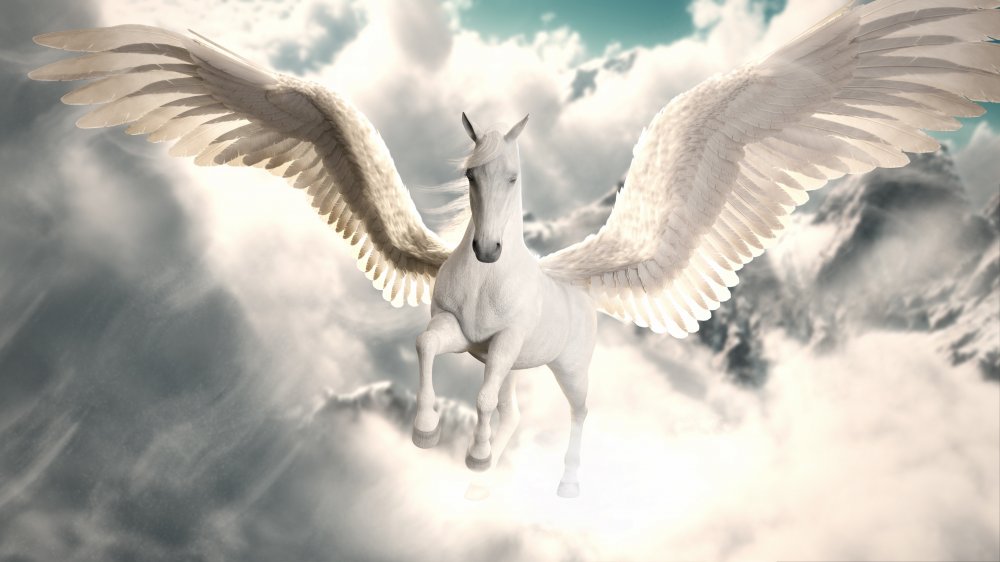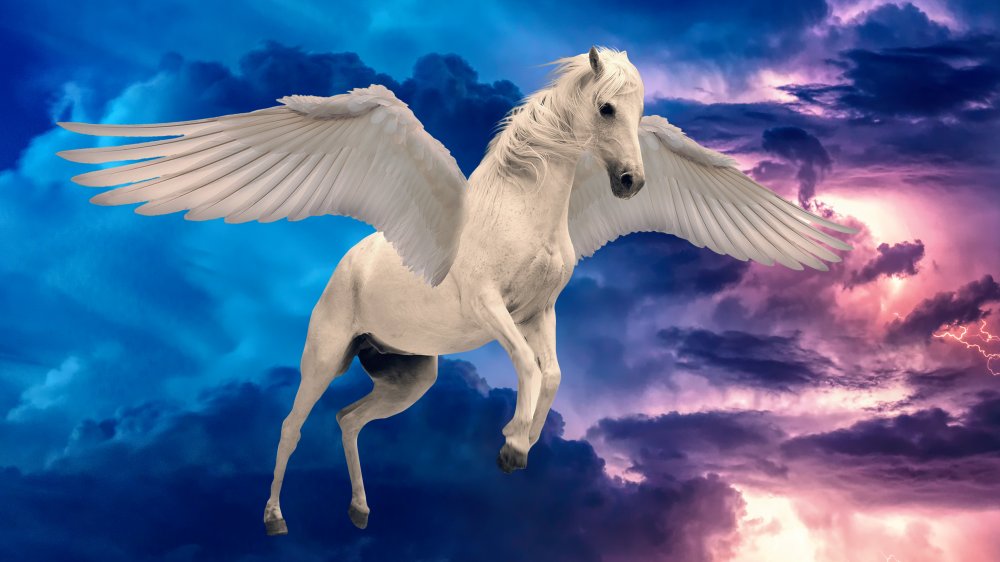The Legend Of Pegasus Explained
Surely one of the defining characteristics of the human animal is imagination: creating that which doesn't yet exist, in story or art or engineering. No doubt that long, long ago humans were very busy indeed, gathering and hunting and avoiding being hunted or, for that matter, gathered. With prosperity comes leisure. When every waking moment isn't dedicated to survival, you have time to dream. To create. You know — like Tom Hanks in Cast Away. Once we've sufficiently hunted/gathered, let's all gather 'round the campfire and spin a yarn or two. Eventually that will lead to Star Trek. But before that, flight was on our collective mind. Maybe people couldn't fly — reference the Ancient Greeks' tale of Icarus, related by Greek Reporter. But birds do. Even great big birds — like, say, the Roc. Winged griffins do. What if? What if you could go really fast — like, on a horse — but also through the air? And from that slice of ancient speculative fiction we have one of the most enduring of Greek myths, the tale of Pegasus.
Pegasus was mostly horse, but with the addition of wings, therefore enabling flight for a creature that doesn't usually fly through the air with the greatest of ease. (Think Dumbo, but without the ears.) Pegasus didn't enter the world the way you or I might have. The winged horse sprang into being from the blood of Medusa, the Gorgon, slain by the hero Perseus, according to Encyclopaedia Britannica.
Pegasus was one sweet ride
In her book Mythology, Edith Hamilton dates the stories back to the Greek poet Hesiod, around the 8th or 9th Century BCE, and another Greek lyric poet, Pindar, who told the story "first and best," around the 5th Century BCE.
Another hero, Bellerophon, wanted Pegasus "more than anything on earth," Hamilton writes. He was advised to ask the intercession of Athena, goddess of wisdom and knowledge, per Legends and Myths. She it was who gave Bellerophon a charmed golden bridle which Pegasus would not reject. It worked. Together, the hero and his winged steed went adventuring, most famously taking on the Chimaera, "a most singular portent, a lion in front, a serpent behind, a goat in between," as Hamilton describes it. Oh, and it breathed fire. Spoiler: Bellerophon and Pegasus triumphed, as they did in every other impossible task.
As happened then, as happens now, with great success came great ego. It all went to Bellerophon's head, and he decided he'd ride Pegasus up to take his place among the gods on Mount Olympus. The horse knew better, as horses often do, and threw Bellerophon. Crippled by the fall, he became bitter, wandering alone, "devouring his own soul" until he died.
For its part, Pegasus "found shelter in the heavenly stalls of Olympus where the steeds of Zeus were cared for." Not only that, but Pegasus was the favorite. When Zeus decided to hurl thunderbolts, it was Pegasus who brought them to him. Not a bad retirement gig.

